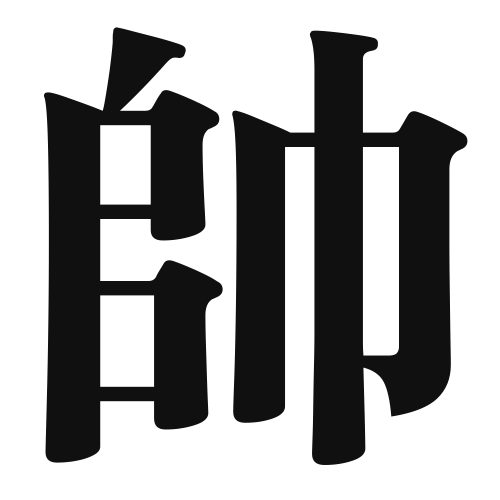1. Overview of Meaning
The kanji “帥” (pronounced “sui” in Japanese) primarily means “commander” or “general.” It is often associated with leadership and authority in a military context.
2. Formation and Radical
Formation of the Kanji: The kanji “帥” is a phonetic compound (形声文字) that combines elements to convey its meaning. The left part, “巾,” represents cloth, while the right part, “最,” suggests the idea of being the best or highest, which relates to leadership.
Radical: The radical of “帥” is “巾,” which is commonly associated with cloth or fabric.
3. Examples of Usage
Common Words and Phrases: Some common words that include “帥” are “帥気” (sui-ki, meaning “dashing” or “handsome”) and “帥府” (sui-fu, meaning “command headquarters”).
Example Sentences in Daily Conversation:
- 彼は軍の帥として知られています。 (He is known as a commander in the army.)
- その映画の主人公はとても帥気です。 (The protagonist of that movie is very dashing.)
4. Synonyms and Antonyms
Similar Kanji: A similar kanji is “将” (shou), which also means “general” but can imply a broader sense of leadership beyond military contexts.
Antonyms: An antonym could be “敗” (hai), which means “defeat,” representing the opposite of a successful commander.
5. Cultural and Historical Background
Relation to Japanese Culture: The concept of a “帥” is deeply rooted in Japanese history, particularly in the context of samurai culture and military hierarchy.
Proverbs and Idioms: One relevant proverb is “帥の器” (sui no utsuwa), which refers to the qualities and capabilities of a leader, emphasizing the importance of having the right attributes to lead effectively.
